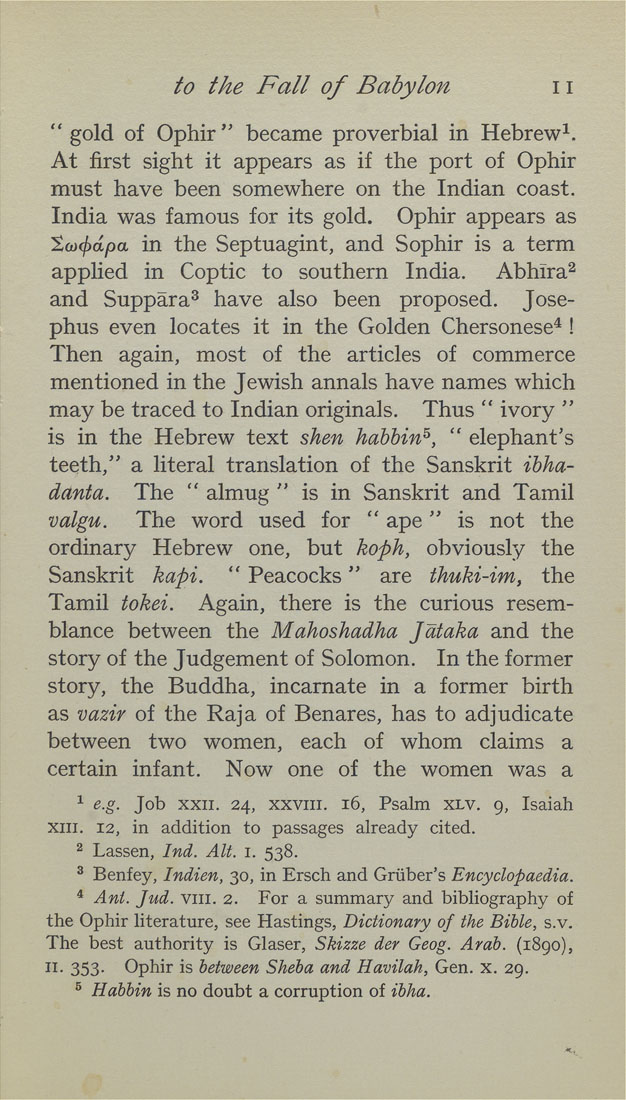to the Fall of Babylon 11
" gold of Ophir" became proverbial in Hebrew^.
At first sight it appears as if the port of Ophir
must have been somewhere on the Indian coast.
India was famous for its gold. Ophir appears as
'Zojcf)dpa in the Septuagint, and Sophir is a term
applied in Coptic to southern India. Abhira^
and Suppara^ have also been proposed. Jose-
phus even locates it in the Golden Chersonese* !
Then again, most of the articles of commerce
mentioned in the Jewish annals have names which
may be traced to Indian originals. Thus " ivory "
is in the Hebrew text shen habbin^, " elephant's
teeth," a literal translation of the Sanskrit ibha-
danta. The " almug " is in Sanskrit and Tamil
valgu. The word used for " ape" is not the
ordinary Hebrew one, but koph, obviously the
Sanskrit kapi. " Peacocks" are thuki-im, the
Tamil tokei. Again, there is the curious resem¬
blance between the Mahoshadha Jdtaka and the
story of the Judgement of Solomon. In the former
story, the Buddha, incarnate in a former birth
as vazif of the Raja of Benares, has to adjudicate
between two women, each of whom claims a
certain infant. Now one of the women was a
^ e.g. Job xxii. 24, xxviii. 16, Psalm xlv. 9, Isaiah
Xiii. 12, in addition to passages already cited.
2 Lassen, Ind. Alt. i. 538.
^ Benfey, Indien, 30, in Ersch and Griiber's Encyclopaedia.
^ Ant. Jud. viii. 2. For a summary and bibliography of
the Ophir literature, see Hastings, Dictionary of the Bible, s.v.
The best authority is Glaser, Skizze der Geog. Arab. (1890),
II- 353- Ophir is between Sheba and Havilah, Gen. x. 29.
^ Habbin is no doubt a corruption of ibha.
|








